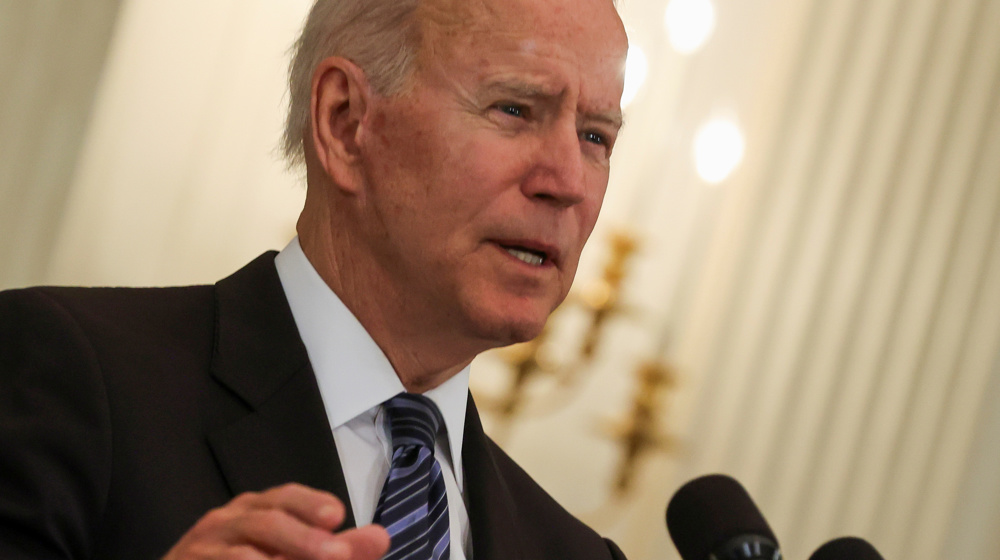Political experts say US President Joe Biden’s visit to the Israeli-occupied lands and Saudi Arabia this week will lead to an increase in the repression of Palestinians and activists in Persian Gulf countries amid indications that Riyadh and ‘Tel Aviv’ are poised to normalize their diplomatic relations during the trip.
The experts argue the visit appears to be a sign that Washington is forsaking any meaningful contribution toward solving the Israeli-Palestinian conflict, and rather, it is solely pursuing further normalization of Israeli ties with Arab countries.
“This is just completely throwing the Palestinians under the bus and pretending that this is peace,” Trita Parsi, executive vice president of the Quincy Institute, said during a webinar hosted by the Foundation for Middle East Peace on Monday.
Activists have said that the repression of Palestinians living under Israeli occupation has increased significantly over the past several years, particularly with the emergence of technologies like Blue Wolf tracking system, which captures images of Palestinians and matches them to an Israeli military database, and Pegasus spyware, which hacks users’ cellphones.
“What it means for the Palestinian public is increased repression, because these agreements have a component that deals with repressive technologies and the development of these technologies,” Dana el-Kurd, an assistant professor at the University of Richmond, said.
Arab citizens opposed to normalization as well as Persian Gulf activists argue that the establishment of Israeli ties with Arab states will narrow the space for protest and opposition and will lead to a rise in the quelling of dissent.
Hacking technology developed by Israeli spyware firms has reportedly been sold to Persian Gulf countries, where they have been used to target the phones of activists, journalists, and dissidents.
“These are different countries that need Israel’s assistance in repressing their own populations, not just because of the Abraham Accords, but in general,” Parsi said of Arab countries that have normalized ties with Israel.
Kurd said public polling shows that most Arab citizens are highly opposed to the normalization of relations with Israel.
“So when the state goes ahead and pursues these normalization deals at odds with the societal sentiment, there is often opposition and dissent which is then cracked down on,” she said.
“Especially between the United Arab Emirates and Israel, there are these investments in repressive technologies in the sharing of repressive technologies, including surveillance that has already been used against activists in these countries.
“[It] has really impacted the levels of trust in society, people are afraid of one another,” Kurd noted.
On Monday afternoon, a private Israeli jet landed in Saudi Arabia amid speculation that the kingdom and Israel would normalize diplomatic relations as Biden is going to visit the Middle East.
The aircraft, which was previously used by the Israeli spy agency Mossad, departed from Tel Aviv’s Ben Gurion Airport and landed in the Saudi capital city of Riyadh, according to Simon Arann, a political affairs commentator for the Israeli Arabic-language Makan television network.
The report came a day after the Israeli prime minister expressed hope that the regime will establish formal diplomatic ties with Saudi Arabia.
“Israel extends its hand to all the countries of the region and calls on them to build ties with us, establish relations with us, and change history for our children,” Yair Lapid said during a weekly cabinet meeting.
He asserted that Biden will carry “a message of peace and hope from us” when he leaves for Saudi Arabia.
Israel and Saudi Arabia do not have official diplomatic relations but have shared clandestine security ties. The kingdom is widely believed to be among a handful of Arab states weighing open ties with Israel.
Shortlink for this post: https://daysofpalestine.ps/?p=21967




